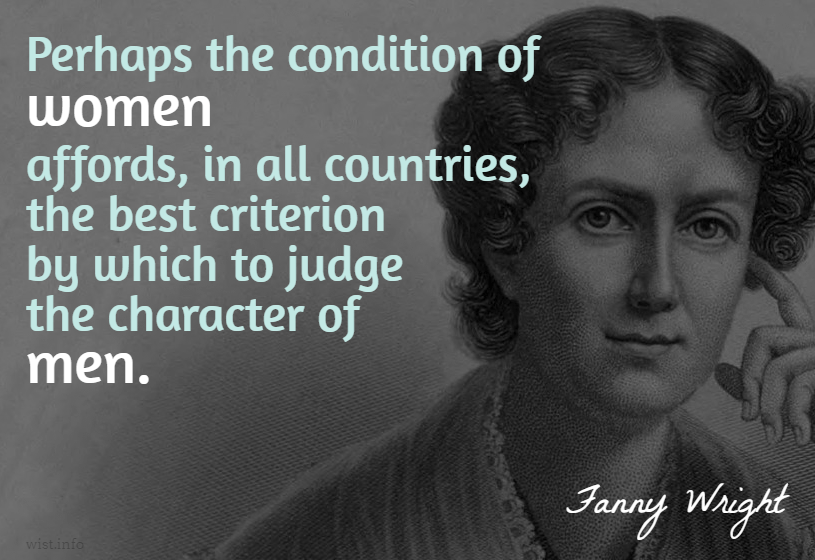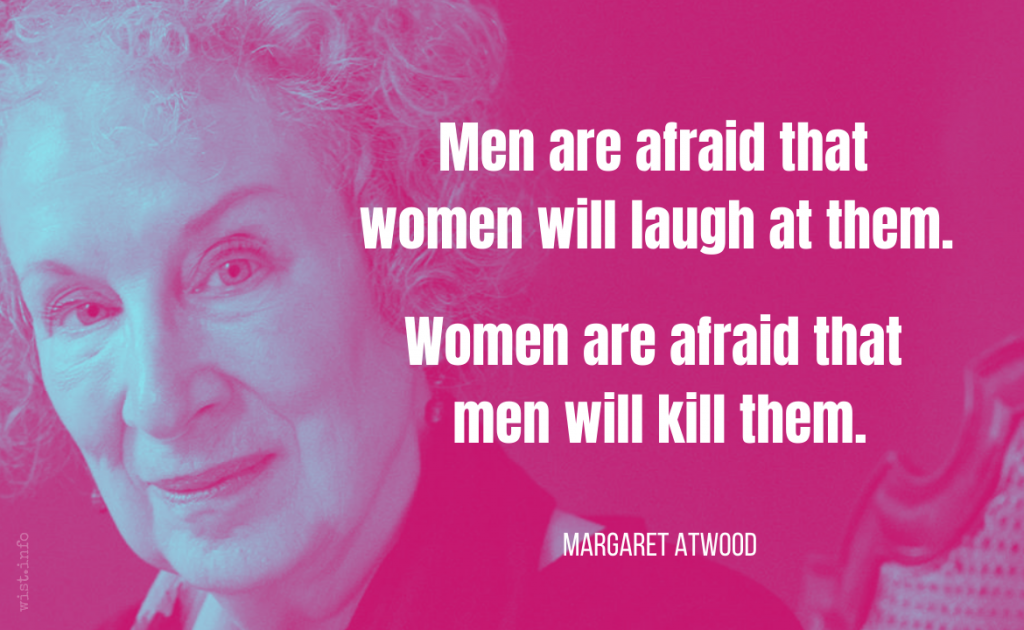Strange to say, the first symptom of true love in a young man is timidity; in a young girl it is boldness. This is surprising, and yet nothing is more simple. It is the two sexes tending to approach each other and assuming each the other’s qualities.
[Et puis, chose bizarre, le premier symptôme de l’amour vrai chez un jeune homme, c’est la timidité, chez une jeune fille, c’est la hardiesse. Ceci étonne, et rien n’est plus simple pourtant. Ce sont les deux sexes qui tendent à se rapprocher et qui prennent les qualités l’un de l’autre.]
Victor Hugo (1802-1885) French writer
Les Misérables, Part 4 “Saint Denis,” Book 3 “The House in the Rue Plumet,” ch. 6 (4.3.6) (1862) [tr. Hapgood (1887)]
(Source)
(Source (French)). Alternate translations:Oddly enough, the first symptom of true love in a young man is timidity, in a young woman, boldness. This is surprising, and yet nothing is more natural. It is the two sexes tending to unite, and each acquiring the qualities of the other.
[tr. Wilbour (1862)]Strange it is, the first symptom of true love in a young man is timidity; in a girl it is boldness. This will surprise, and yet nothing is more simple; the two sexes have a tendency to approach, and each assumes the qualities of the other.
[tr. Wraxall (1862)]And besides, although shyness is the first sign of true love in a youth, boldness is its token in a maid. This may seem strange, but nothing could be more simple. The sexes are drawing close, and in doing so each assumes the qualities of the other.
[tr. Denny (1976)]And then, oddly enough, the first symptom of true love in a man is timidity, in a young woman, boldness. This is surprising, and yet nothing is more natural. It is the two sexes tending to unite, and each acquiring the qualities of the other.
[tr. Wilbour/Fahnestock/MacAfee (1987)]
Quotations about:
sexes
Note not all quotations have been tagged, so Search may find additional quotes on this topic.
Perhaps the condition of women affords, in all countries, the best criterion by which to judge the character of men.
Frances "Fanny" Wright (1795-1852) Scottish-American writer, lecturer, social reformer
Views of Society and Manners in America, Letter 23, Mar. 1820 (1821)
(Source)
Women are supposed to be very calm generally; but women feel just as men feel; they need exercise for their faculties and a field for their efforts as much as their brothers do; they suffer from too rigid a restraint, too absolute a stagnation, precisely as men would suffer; and it is narrow-minded in their more privileged fellow-creatures to say that they ought to confine themselves to making puddings and knitting stockings, to playing on the piano and embroidering bags. It is thoughtless to condemn them, or laugh at them, if they seek to do more or learn more than custom has pronounced necessary for their sex.
Charlotte Brontë (1816-1855) British novelist [pseud. Currer Bell]
Jane Eyre, ch. 12 [Jane] (1847)
(Source)
Man is always looking for someone to boast to; woman is always looking for someone to complain to.
That your Sex are Naturally Tyrannical is a Truth so thoroughly established as to admit of no dispute, but such of you as wish to be happy willingly give up the harsh title of Master for the more tender and endearing one of Friend. Why, then, not put it out of the power of the vicious and the Lawless to use us with cruelty and indignity with impunity? Men of Sense in all Ages abhor those customs which treat us only as the vassals of your sex; regard us then as Beings placed by Providence under your protection, and in imitation of the Supreme Being make use of that power only for our happiness.
“Why do men feel threatened by women?” I asked a male friend of mine. (I love that wonderful rhetorical device, “a male friend of mine.” It’s often used by female journalists when they want to say something particularly bitchy but don’t want to be held responsible for it themselves. It also lets people know that you do have male friends, that you aren’t one of those fire-breathing mythical monsters, The Radical Feminists, who walk around with little pairs of scissors and kick men in the shins if they open doors for you. “A male friend of mine” also gives — let us admit it — a certain weight to the opinions expressed.) So this male friend of mine, who does by the way exist, conveniently entered into the following dialogue. “I mean,” I said, “men are bigger, most of the time, they can run faster, strangle better, and they have on the average a lot more money and power.” “They’re afraid women will laugh at them,” he said. “Undercut their world view.” Then I asked some women students in a quickie poetry seminar I was giving, “Why do women feel threatened by men?” “They’re afraid of being killed,” they said.
Margaret Atwood (b. 1939) Canadian writer, literary critic, environmental activist
“Writing the Male Character,” Hagey Lecture, U. of Waterloo (9 Feb 1982)
(Source)
Published in a revised version as "Writing the Male Character," Second Words: Selected Critical Prose, 1960-1982 (1983).
Usually paraphrased, "Men are afraid that women will laugh at them. Women are afraid that men will kill them."
Maybe my values are outdated, but I come from an old school of thought. I think that men ought to treat women like something other than just shorter, weaker men with breasts. Try and convict me if I’m a bad person for thinking so. I enjoy treating a woman like a lady, opening doors for her, paying for shared meals, giving flowers — all that sort of thing.
Again, the male is by nature superior, and the female inferior; and the one rules, and the other is ruled; this principle, of necessity, extends to all mankind.
Aristotle (384-322 BC) Greek philosopher
Politics [Πολιτικά], Book 1, ch. 5 / 1254b [tr. B. Jowett (1885)]
(Source)
Aristotle is arguing that there is a natural distinction between the rulers and ruled, starting first with animals, then with sex. Alternate translations:
- "Again, the relation of male to female is naturally that of superior and inferior, ruling and ruled, and the same kind of relation must necessarily exist in the case of all men generally." [tr. Bolland (1877)]
- "So is it naturally with the male and the female; the one is superior, the other inferior; the one governs, the other is governed; and the same rule must necessarily hold good with respect to all mankind." [tr. Ellis (1912)]
- "Again, as between the sexes, the male is by nature superior and the female inferior, the male ruler and the female subject. And the same must also necessarily apply in the case of mankind as a whole." [tr. Rackham (1932)]
- "Further, the relation of male to female is by nature a relation of superior to inferior and ruler to ruled. The same must of necessity hold in the case of human being generally." [tr. Lord (1984)]
Sexes. One has the look of a wound, the other of something skinned.
Joseph Joubert (1754-1824) French moralist, philosopher, essayist, poet
Pensées [Thoughts], 1797 entry [tr. Auster (1983)]
(Source)
I could not find an analog in other translations of the Pensées.











